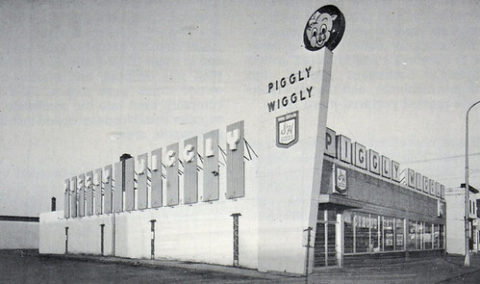Joe Lancaster on Senator Elizabeth Warren’s renewed assault on the top-hatted, monocle-wearing robber barons of the grocery business:

“Piggly Wiggly” by afiler is licensed under CC BY-SA 2.0
… Warren could hardly have picked a worse industry to use as an example: Grocery stores consistently have among the lowest profit margins of any economic sector. According to data compiled this month by New York University finance professor Aswath Damodaran, the entire retail grocery industry currently averages barely more than 1 percent in net profit. In its most recent quarter, Kroger reported a profit margin of 0.75 percent, during a time in which Warren claims that the chain was “expanding profits” due to its “market dominance.”
In actuality, for much of the last year, grocery stores have seen enormous boosts in revenue, but not increased profitability, for the simple reason that everything has been costing more: not just products, but transportation, employee compensation, and all the extra logistical steps needed to adapt to shopping during a pandemic. Couple that with persistent inflation — which Warren also recently blamed on “price gouging” — and it is no wonder that things seem a bit out of balance.
Warren has had an itchy trigger finger for antitrust laws for some time. In 2019, as part of her presidential platform, she called for using the laws to forbid retailers from selling their own products. This would affect industry leaders like Amazon and Walmart, but ironically, it would have a devastating impact on grocery stores as well: Grocers increasingly rely on their own proprietary goods to stock cheaper alternatives alongside name brands. This provides not only less expensive options for consumers, but lower costs to the stores themselves. Store brands also help fill gaps created by external supply shortages.



